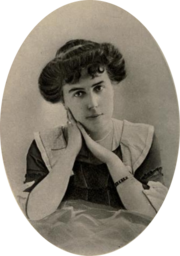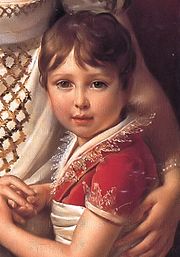Design
Design
Personality
Chart Properties
Your Cross represents the specific theme of your life. This cross embodies your unique potential & the lessons you're here to learn, providing a roadmap to fulfilling your life purpose.
We use the UTC birth time and date to do the calculations required to generate your Human Design chart.
Buy Tokens
Pay as you use, no expiry and no subscription required.Prompt Ideas
Get inspired with some epic prompt ideas.Doris Lessing's Biography
British novelist, poet, playwright, librettist, biographer and short story writer. Her novels included The Grass is Singing (1950), the sequence of five novels collectively called Children of Violence (1952–69), The Golden Notebook (1962), The Good Terrorist (1985), and five novels collectively known as Canopus in Argos: Archives (1979–1983).
Lessing was awarded the 2007 Nobel Prize in Literature. In awarding the Prize the Swedish Academy described her as “that epicist of the female experience, who with scepticism, fire and visionary power has subjected a divided civilisation to scrutiny”. Lessing was the eleventh woman and the oldest person ever to receive the Nobel Prize in Literature.
Lessing was born to Captain Alfred Tayler and Emily Maude Tayler (née McVeagh), who were both English and of British nationality. The family then moved to the British colony of Southern Rhodesia (now Zimbabwe) in 1925 to farm maize, among other plants, when her father purchased around one thousand acres of bush. Lessing’s mother attempted to lead an Edwardian lifestyle amidst the rough environment, which would have been easy had the family been wealthy; in reality, such a lifestyle was not feasible. The farm failed to deliver any monetary value in return.
Lessing was educated at the Dominican Convent High School, a Roman Catholic convent all-girls school in Salisbury (now Harare). She left school at the age of 14, and was self-educated from then on; she left home at 15 and worked as a nursemaid. She started reading material that her employer gave her on politics and sociology and began writing around this time. In 1937, Lessing moved to Salisbury to work as a telephone operator, and she soon married her first husband, Frank Wisdom, with whom she had two children (John and Jean), before the marriage ended in 1943.
After her first divorce, Lessing’s interest was drawn to the popular community of the Left Book Club, a communist book club which she had joined the year before. It was here that she met her future second husband, Gottfried Lessing. They were married shortly after she joined the group, and had a child together (Peter), before the marriage failed and ended in divorce in 1949. After these two failed marriages, she did not marry again. Gottfried Lessing later became the East German ambassador to Uganda, and was murdered in the 1979 rebellion against Idi Amin Dada.
When she fled to London to pursue her writing career and communist beliefs, Lessing left two toddlers with their father in South Africa (another, from her second marriage, went with her). She later said that at the time she thought she had no choice: “For a long time I felt I had done a very brave thing. There is nothing more boring for an intelligent woman than to spend endless amounts of time with small children. I felt I wasn’t the best person to bring them up. I would have ended up an alcoholic or a frustrated intellectual like my mother.”
The German politician Gregor Gysi is a nephew of her second husband.
Because of her campaigning against nuclear arms and apartheid, Lessing was banned from South Africa and Rhodesia for many years. She moved to London with her youngest son in 1949. Her first novel, The Grass is Singing, was published in 1950. Her breakthrough work, The Golden Notebook, was written in 1962.
She died on 17 November 2013.
Link to Wikipedia biography
Your Cross represents the specific theme of your life. This cross embodies your unique potential & the lessons you're here to learn, providing a roadmap to fulfilling your life purpose.
We use the UTC birth time and date to do the calculations required to generate your Human Design chart.
Prompt Ideas
Get inspired with some epic prompt ideas.Jean-Yves Dubois
4/6 Emotional - Solar Plexus GeneratorThomas G. Morton
3/6 Emotional - Solar Plexus Manifesting GeneratorClaude Blaire
3/5 Emotional - Solar Plexus Generator

Marie Leneru
1/3 Sacral GeneratorDominique Samiel
1/4 Sacral Generator





